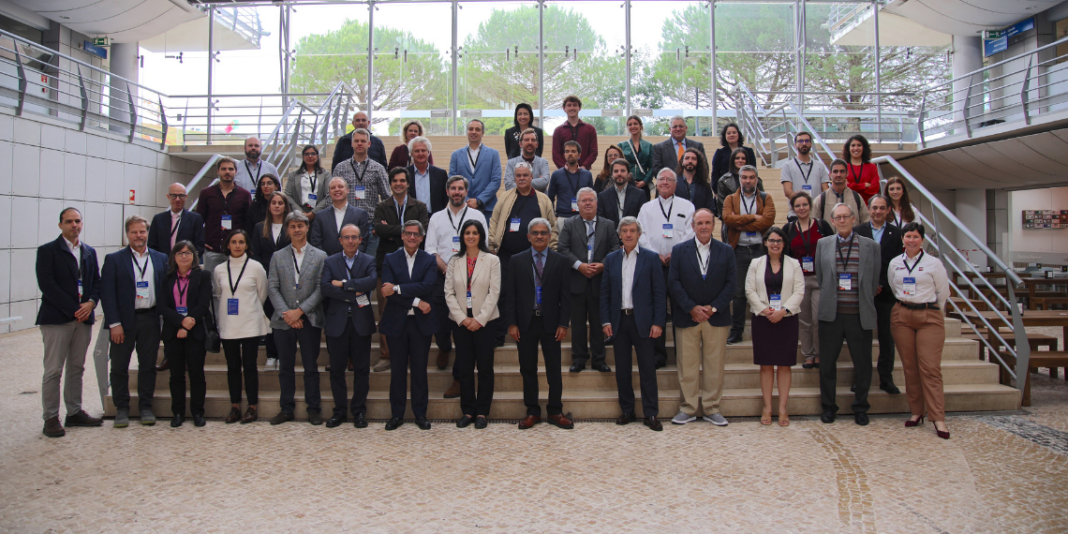Science with impact is only possible with bridges to the market. The 2024 conference of the UT Austin Portugal Program discussed them with a group of experts - UT Austin Portugal (original) (raw)
Crafting impactful science, namely with an impact on the lives of ordinary people, is a challenge faced by the main scientific players. Whether due to funding issues, legal barriers or difficulties in navigating market uncertainties – all of which are constantly evolving – discoveries are often limited to the walls of academia, seeing their potential for application diminished and the opportunity lost. The question therefore naturally arises: how can science and innovation be effectively transferred to the market?
With an active role in establishing new frontiers for knowledge, the UT Austin Portugal Program made this the theme of its Annual Conference, which took place on October 29. The venue? The Instituto Superior Técnico facilitiesat the Taguspark, also known as the “Knowledge City”. The motto was set for a day full of discussions, starting from the various scientific areas of the Program, but also from the point of view of actors outside academia, providing complementary points of view.
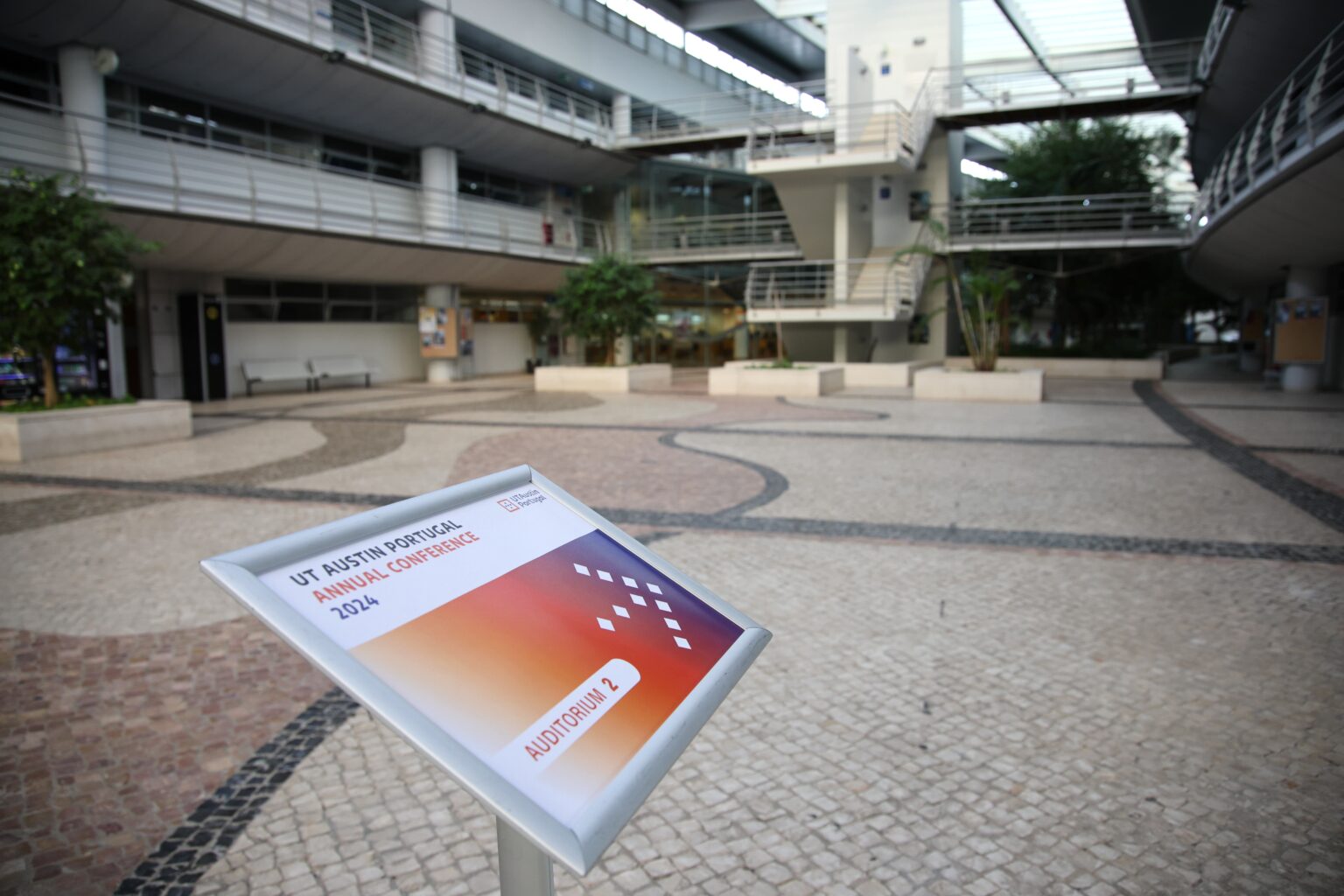
Science and innovation hotspots are where the Program community wants to be. Identifying them is a key starting point. This was the theme of the presentation by Rui Oliveira, Co-Director of the UT Austin Program in Portugal, entitled “Where do the next research and innovation hotspots lie?”, which presented the conclusions of the UT Austin Portugal Colloquium: Charting Future Impact, held last September, in Austin, with over 90 delegates from the Program’s community.
Opportunities for collaboration were discussed with a view to preparing the communities of the two hubs of the Program to respond to societal problems. Joint efforts on both sides of the ocean, it is believed, will make it possible to accelerate advances in research, train a new generation of researchers and transfer more outputs to the markets. Rui Oliveira wrapped up stating that that more conclusions and data would be made available in the Colloquium’s report to be handed over to the Minister of Education, Science and Higher Education of the Portuguese Government.
Making the leap from academia to the market without losing sight of people
Computer graphics and its strong connection with large amounts of data is present in a wide variety of areas and it is predicted that this relationship will only increase as the amount of data accumulates. Processing this data requires the combination of various sciences and operations and this is exactly what KATANA, a start-up created by Keshav Pingali (The University of Texas at Austin) in 2021, sets out to do. Building on the work done by his research group at the University of Texas at Austin, the keynote speaker at the UT Austin 2024 Program Annual Conference, made the leap to the market and, in Oeiras, explained the main challenges he faced, what he did well and what he could have done better – namely, combining the academic and industrial mentality when it came to decision-making and the pressure from investors to grow the team.
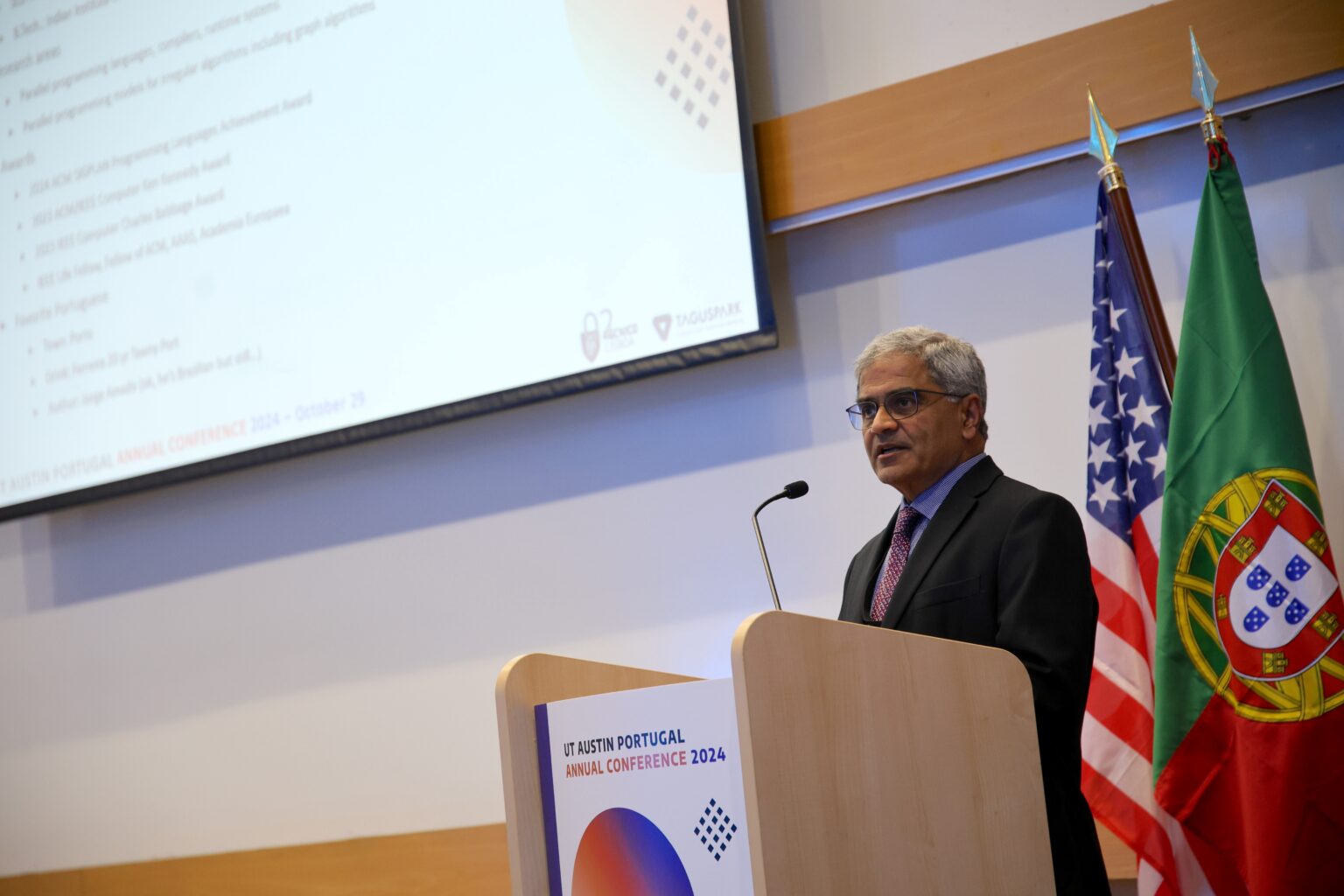
After Keshav Pingali’s valuable and realistic testimony, came the first round table of the day, led by José Manuel Mendonça, and entitled “Envisioning Tomorrow’s World with Impactful Science”. With experts from different scientific and professional backgrounds, this panel inevitably contributed to a richer discussion that touched on topics as pertinent as the role of science and innovation in an ever-changing geopolitical scenario, as Guy Villax (Entrepreneur and Member of CNCTI – Portugal’s National Council on Science, Technology and Innovation) pointed out.
Fernanda Leite (Associate Dean for Research & Professor, Cockrell School of Engineering, The University of Texas at Austin) highlighted human development as a central element of research at The University of Texas at Austin, believing that only with this motivation will it make sense to implement efforts and resources. Brian Korgel (Director of The University of Texas at Austin Energy Institute, The University of Texas at Austin) agreed, highlighting the role that communities play in the success of research, some of which is carried out in disadvantaged contexts in order to reverse inequalities.
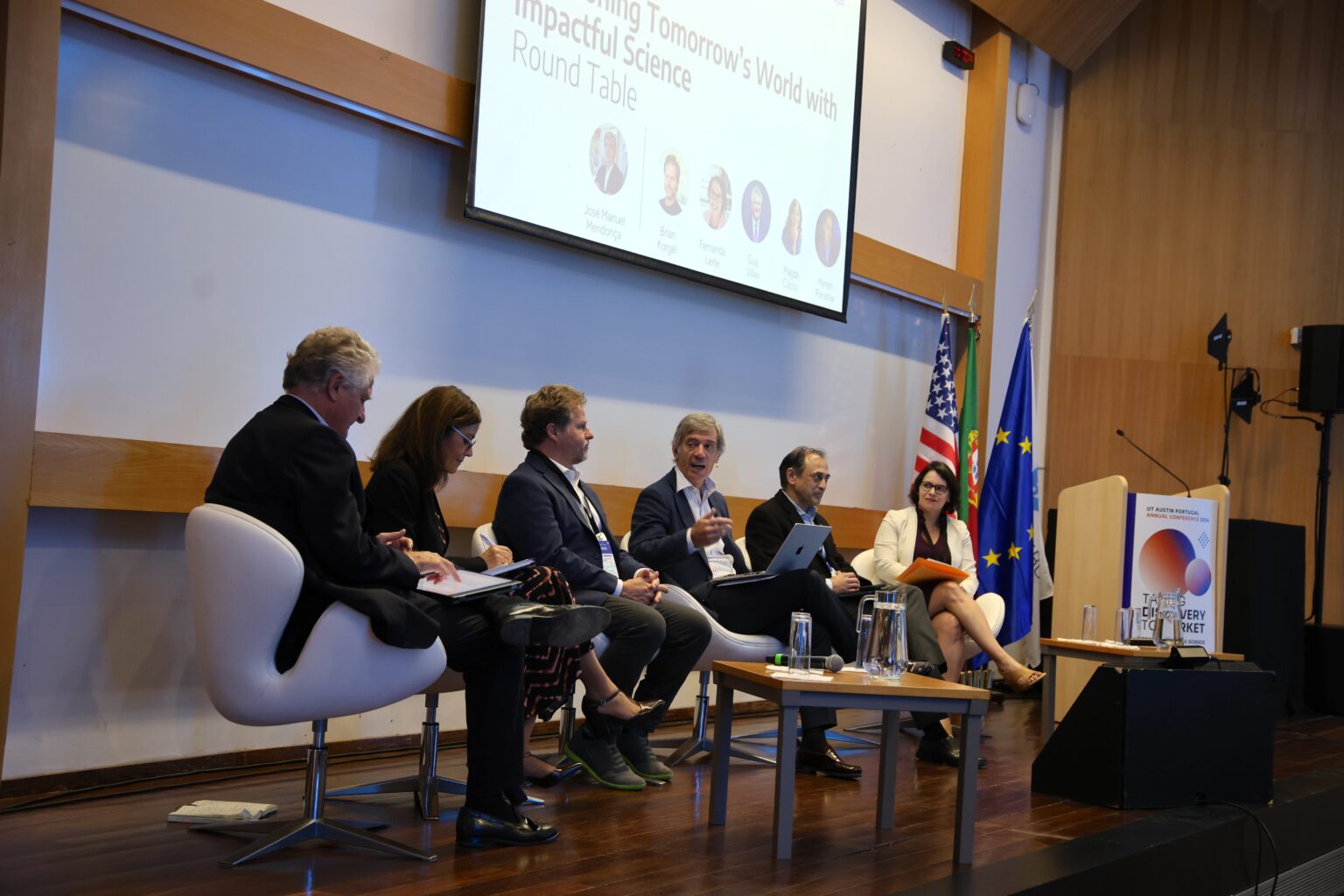
Magda Cocco (Head of Practice Partner (Information, Communications & Technology and Digital Frontiers), VdA, Vieira de Almeida, Sociedade de Advogados) gave the audience a glimpse of the main legal differences that scientists and entrepreneurs face in the U.S. and Europe, with markedly different approaches to data protection, intellectual property and incentives for business creation.
AI at the heart of scientific and technological development — even on the road to Space
The second round table of the day didn’t disappoint either. Led by Ana Pires (Researcher at INESC TEC and First Portuguese Female Scientist-Astronaut), the session entitled “Space Tech – Lessons Learned From Discovery to Market” focused on the rapid growth in the area of space technology and how it has come closer to the market. With representatives from different companies and entities operating in this field, it became clear that even in a country taking its first steps in this area, it is possible to implement innovative ideas.
Representative examples are the cases of Neuraspace and LAETA, Associated Laborator of Energy, Transports and Aeronautics. In the first case, the company based in Coimbra and represented on the panel by Marta Guimarães is dedicated to combating space waste using AI, with an approach focused on the circular economy. The second, formed in 2006, has 4 managing institutions and 32 participants. Their focus? Providing a vast platform for sharing knowledge, as Pedro Camanho explained to the audience.
The round table also included Emir Sirage, from the NewSpace Portugal Agenda, Ana Vaz, representing ESA Space Solutions, and Patrick Heimbach, from the Department of Earth and Planetary Sciences, Jackson School of Geosciences, The University of Texas at Austin.
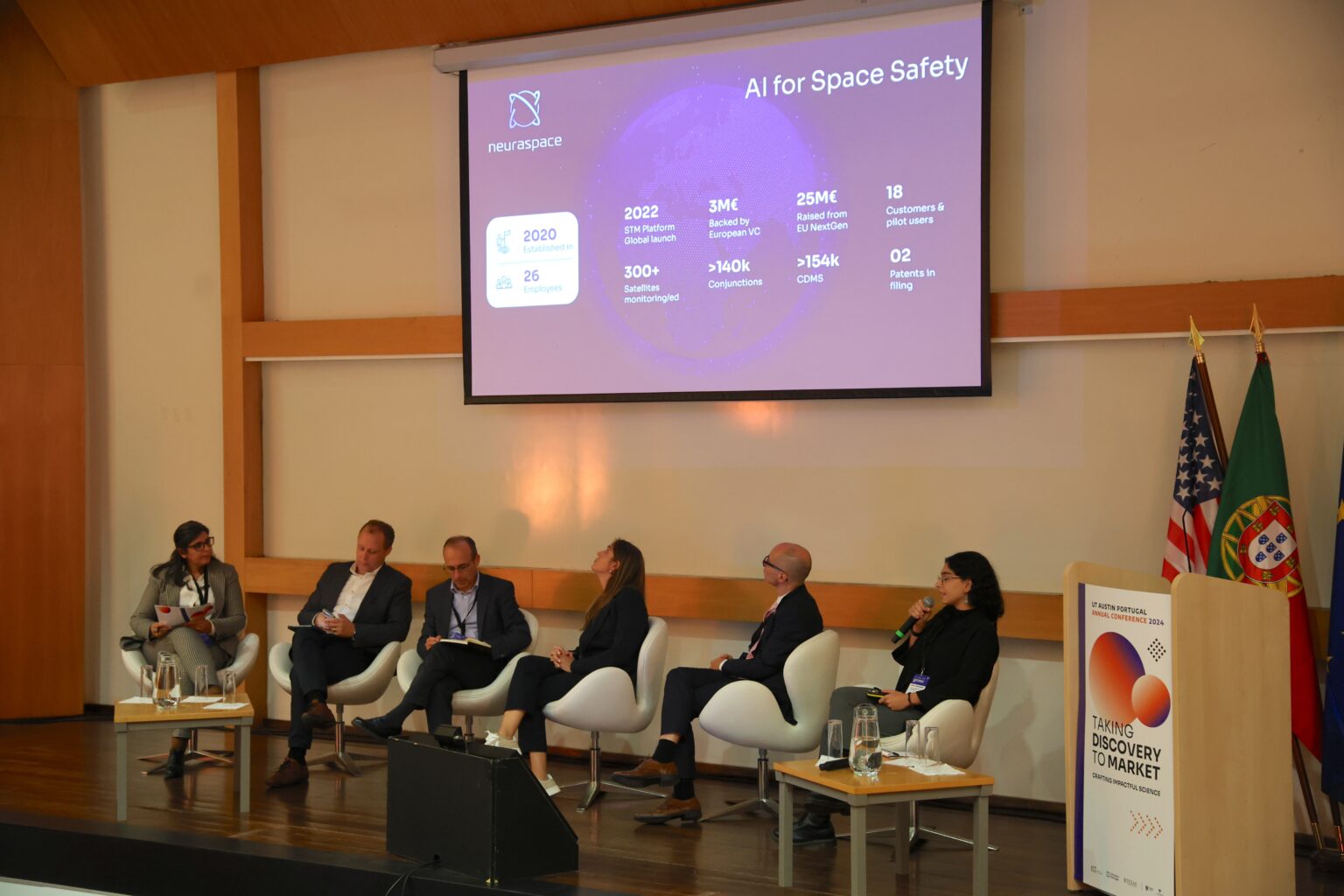
The last talk of day was by Dan Stanzione, Executive Director of the Texas Advanced Computing Center, with a topic that couldn’t have been more opportune: High-Performance Computing in the Age of AI. The preponderance of advanced computing in science and engineering is undeniable, extending its importance to simulations, data analysis or, precisely, Artificial Intelligence, which has recently taken over public opinion, but also many of the available computing resources. As such, Stanzione did not refrain from stating that “modern artificial intelligence exists thanks to HPC” and then proceeded to explain how this technology has evolved.
During his talk, Stanzione also highlighted the link between AI and research, as well as the more negative points associated with it – such as the high demand for energy resources and related costs. As the technology advanced, so did the relationship between TACC and the HPC community in Portugal. One of the hallmarks of this successful partnership was the installation of BOB, Portugal’s first supercomputer, which paved the way for the Deucalion supercomputer and Portugal’s participation in the European High-Performance Computing Joint Undertaking (EuroHPC JU).
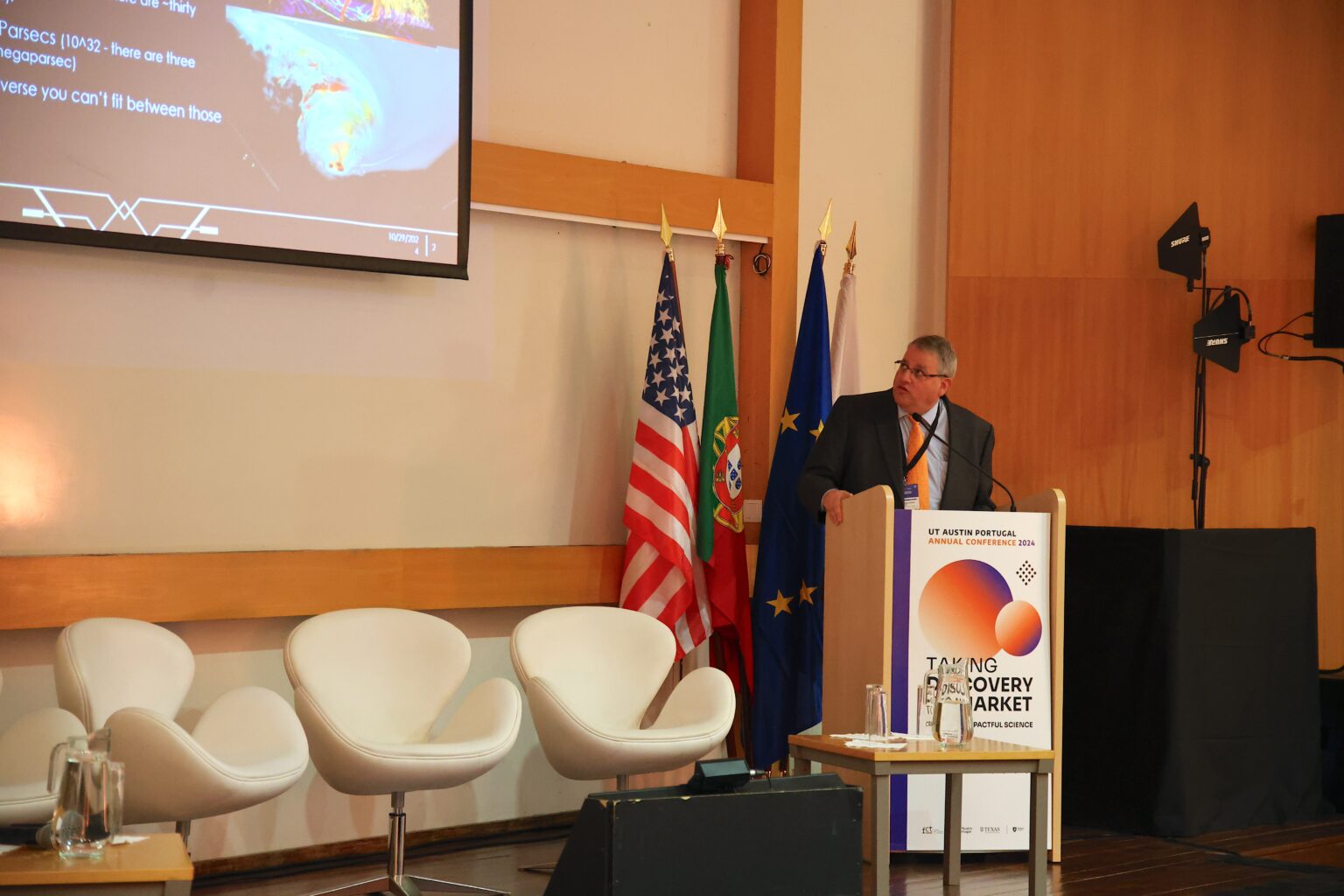
The day ended with closing remarks from José Manuel Mendonça, followed by Madalena Alves, President of the Portuguese Foundation for Science and Technology, and Ana Paiva, Secretary of State for Science. Alvesrecalled the great investment made by the Portuguese funding agency in the S&T partnerships with top U.S. universities, one of which is UT Austin and the positive results yielded from such decisionAna Paiva also gave a current picture of the scientific and technological context, both nationally and internationally, taking the opportunity to relate some of the future priorities in these fields to the Draghi Report.
Soon you’ll be able to browse through the sessions to relieve the moments of our Annual Conference.
